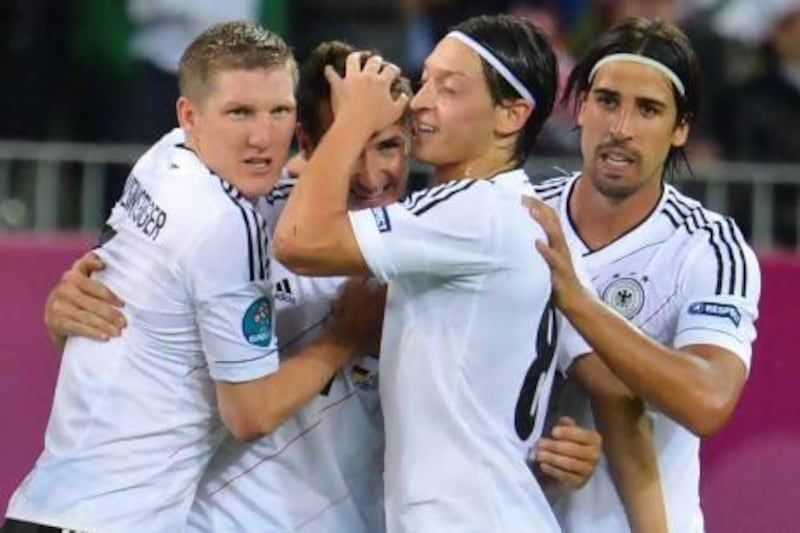The Germans are back.
This seems to have been the popular answer to last week's first-leg Uefa Champions League semi-finals. It will be the answer most probably to this season's Champions League as a whole. The question is, when were they ever away?
Football narrative this past week has been celebrating a German renaissance. This is a new wave of football, a two-pronged takeover of the mind, body and heart of football.
See that footballer there on the poster of your bedroom wall? Bayern Munich will buy him soon because they are the game's new suit. They have some of that old German menace, the kind that rips your heart clean out.
Meanwhile, Borussia Dortmund are the game's anti-suit, wandering around like a well-focused graffiti artist, upsetting established scenery. They are the new Germany, the ones who will steal your heart.
You see the whole of that picture, right? Big-club respect and smaller-club love? It is the most fool-proof takeover ever. Of course it is; this is Germany.
Even when the significance of the wins and talk of a new era were being downplayed, they were inadvertently contributing to the talk of renaissance. True enough that is the nature of discourse, especially sporting, but it is also because of the nature of their wins.
Both were so comprehensive and refreshing to watch and they came against this loosely established, or dominant, order of a kind ("look ma, they actually have strikers!"). It is only natural that it felt intrinsically like, if not a changing of the guard, then a rebirth of sorts.
In a way, the performances were a reminder of the 1990 West German World Cup side, not tactically or stylistically, but in their frighteningly inevitable superiority. Like that side of Lothar Matthaus, Bayern and Dortmund were fitter, stronger, quicker and more organised: they were just so obviously better.
But here is the issue. One of the few prerequisites of any renaissance is a preceding decline or decay, and though German football may not have been big on continental or global trophies lately, can we really say they were going through a trough?
This is Germany after all, of whom the whole point, the whole idea, still remains that they are never too far away from winning something important. More than any other team or club side, the Germans are always in any mix.
This is the team, the club, the mentality and the idea that prompted the famous Gary Lineker line, about football being a game in which 22 men chase a ball over 90 minutes, at the end of which, the Germans win. That line has never gone out of fashion.
Sure, there was a period of seven Champions League seasons, between 2002 and 2008, when no German club made it to the last four though there were regular appearances in the quarter-finals. But even in that time, the German national side were runners-up in a World Cup final, semi-finalists at another, as well as European Championship semi-finalists.
The side that made it to the 2002 World Cup final was widely ridiculed as one of their worst. You can argue convincingly that they got lucky, but know that over a stretch of six matches, luck takes a back seat. But if it was qualitatively their most undeserving side, it conversely captured precisely the permanent idea of German-ness, as does the fact that they never fail to qualify for a major tournament. Somehow, they are always there.
France are not, Holland are not, Spain did not use to be. Germany? Always there and almost always there at the end, as well.
If this was a German decline, then we are speaking very relatively. For most countries, including England or Holland, the German dip in form is what they might realistically hope to emulate.
Sure, they acknowledged themselves around the turn of the century that things weren't quite right; they revamped their youth structure and produced some of the most outstanding younger players of the last decade. Jurgen Klinsmann and Joachim Low were responsible for a stylistic glasnost.
But let's be honest. It is not as if they were producing bad players or consistently bad results, outside of a couple of poor European championships, unless you consider Michael Ballack, Oliver Kahn, Dietmar Hammann, Christian Ziege and Miroslav Klose to be bad players.
German football was dead? Well, long live German football, then.
Follow us
[ @SprtNationalUAE ]





